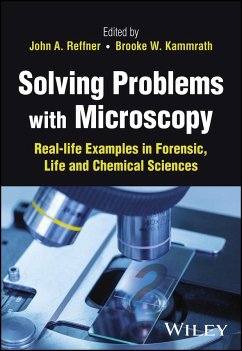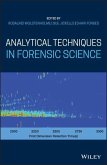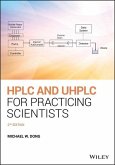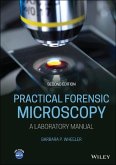Solving Problems with Microscopy
Comprehensive resource, based on real case examples, on the ability of the microscope for solving problems
This book takes a "why to" rather than the common "how to" approach to demonstrate the capabilities of microscopy to solve problems. It provides entertaining and informative case examples and lessons regarding the unique value the microscope brings to problem solving by experienced scientists in various industries, including criminal and civil forensic science, manufacturing, environmental science, pharmaceutical science, cultural heritage, and biological sciences. Sample topics covered in this learning resource include:
_ History of problem solving with microscopy
_ Fortune favors the prepared mind
_ The value of multiple associations
_ The importance of context
_ Knowing your limitations (i.e. knowing what you don't know)
Microscopists and other professional scientists who use microscopy can harness the information in this book to make better and more informed decisions by improving their problem-solving strategies and processes.
Hinweis: Dieser Artikel kann nur an eine deutsche Lieferadresse ausgeliefert werden.
Comprehensive resource, based on real case examples, on the ability of the microscope for solving problems
This book takes a "why to" rather than the common "how to" approach to demonstrate the capabilities of microscopy to solve problems. It provides entertaining and informative case examples and lessons regarding the unique value the microscope brings to problem solving by experienced scientists in various industries, including criminal and civil forensic science, manufacturing, environmental science, pharmaceutical science, cultural heritage, and biological sciences. Sample topics covered in this learning resource include:
_ History of problem solving with microscopy
_ Fortune favors the prepared mind
_ The value of multiple associations
_ The importance of context
_ Knowing your limitations (i.e. knowing what you don't know)
Microscopists and other professional scientists who use microscopy can harness the information in this book to make better and more informed decisions by improving their problem-solving strategies and processes.
Hinweis: Dieser Artikel kann nur an eine deutsche Lieferadresse ausgeliefert werden.








